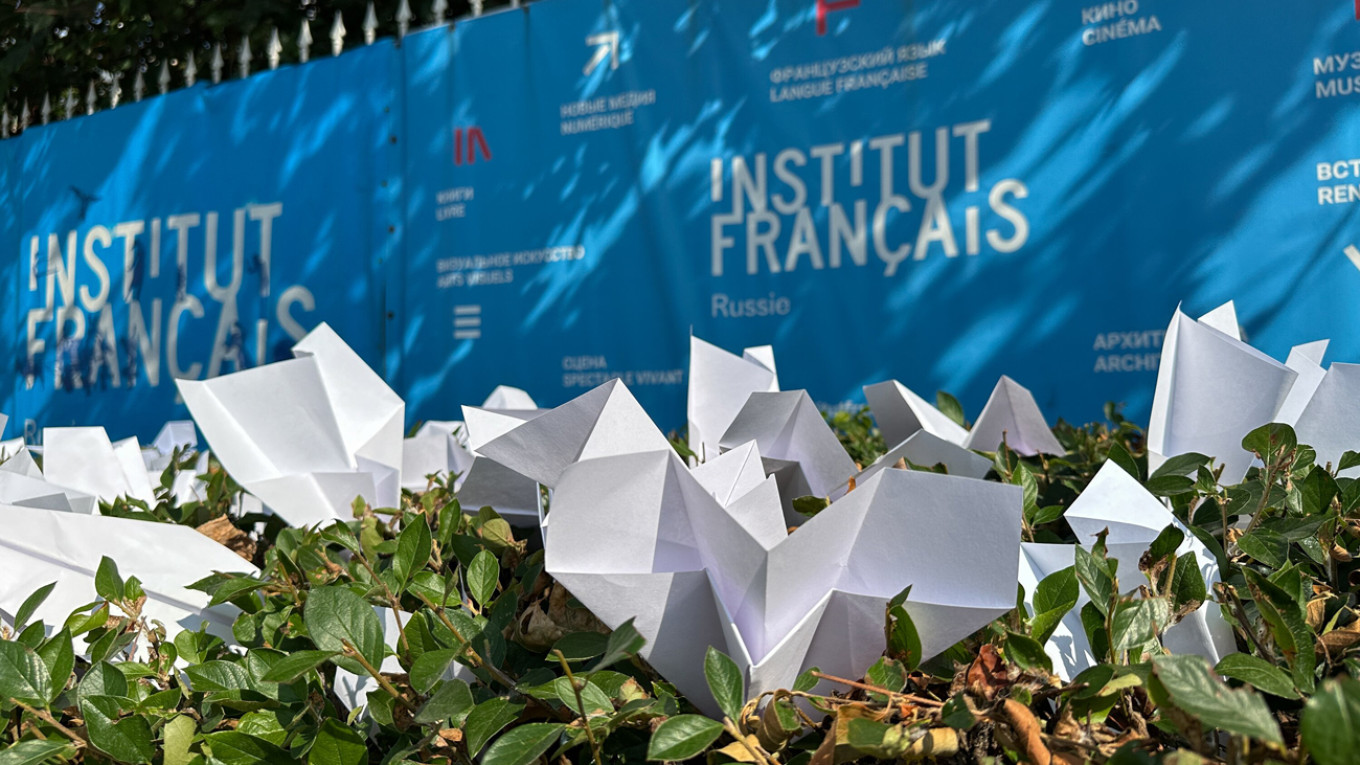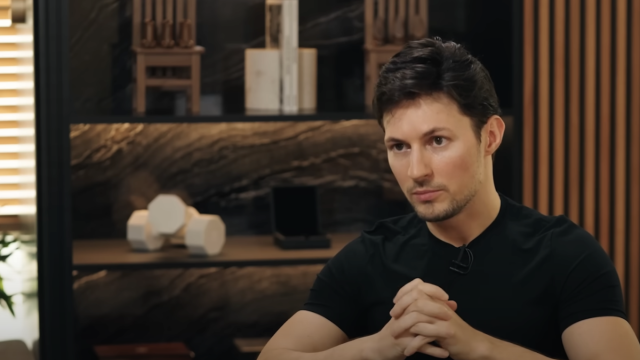The day after Pavel Durov, a Russian emigre billionaire and the founder and CEO of the Telegram messaging service, was arrested in France, the most fascinating aspect was the spectrum of those who promptly came to his defense.
Unsurprisingly, free-market and free-speech absolutists were among the first to rally behind him, cherishing Telegram’s absence of moderation and its reluctance, if not outright refusal, to comply with laws and regulations. Russian opposition figures and opinion leaders, who have relied on Telegram to spread their message, also expressed concern. Yet, intriguingly, Russian military bloggers, worried about the potential for the West to access Telegram’s secrets, joined the chorus of supporters. Even Russian government officials and Putin’s propagandists — those who once pushed Durov out of business and out of the country — are now voicing their support.
Years ago, Durov, a young tech genius, founded VKontakte, a billion-dollar social media network and Russia’s alternative to Facebook. VKontakte had a competitive edge over Facebook and other networks because it was slow to respect intellectual property rights. Simply put, for years, it served as a major channel for free downloads of movies, games and other products. This strategy was undoubtedly aided by the lax and corrupt law enforcement under Putin.
Of course, a business strategy reliant on corruption and judicial inefficiency has its limits. The end of Durov’s VKontakte was a classic example of how business is done in Putin’s Russia. A couple of Putin’s oligarchs offered to buy the social network, while simultaneously using security services to threaten Durov with arrest, thereby lowering the acquisition price. While political scientists debate the effectiveness of social media in toppling authoritarian regimes, Putin and his KGB successors certainly believe in its potential. Faced with threats, Durov sold his shares and fled Russia.
With millions from the sale at his disposal and safely outside Russia, Durov launched Telegram, a messaging service that, like VKontakte before it, had a competitive edge due to its slow adoption of intellectual property protections. Despite the free-market and free-speech philosophy, Telegram's appeal lay largely in its lack of moderation and its lax enforcement of regulations. At the time of writing, just a day after Durov’s arrest, this is cited as the primary reason for his persecution: French authorities are investigating Telegram’s failure to cooperate with law enforcement on issues like drug trafficking, child pornography and online fraud.
In Russia, Telegram became popular among very distinct categories of users. It was a messaging service for those who did not want the government to read their correspondence. While concerns about Western government surveillance might be overblown, in Russia, various police and security services regularly abuse their access to private messages. Due to draconian censorship in Putin’s later years, Telegram became the main platform for publishing Op-Eds, columns, and more. For those who opposed Putin’s war against Ukraine and his political repression, it was the only way to communicate. That’s why many opposition figures and opinion leaders are baffled by Durov's arrest today — Telegram was their primary platform for spreading their message.
Surprisingly, independent opinion makers are joined in Durov’s defense by their sworn enemies: Putin's propagandists. Over the years, the regime has spent enormous sums of money boosting all kinds of propaganda channels on Telegram. Literally, Putin’s government spent money buying “likes,” “forwards” and followers for state-controlled channels. You can see the frustration of these propagandists following Durov’s arrest. A crackdown on Russian state propaganda on Telegram would kill their lucrative business.
Another group concerned with Durov’s arrest is the Russian military waging the war against Ukraine. It appears that Telegram has been — and still is — the primary means of communication within the Russian army. Apparently, the Russian government failed to create other efficient means of military communication. With Durov in French custody, military correspondents are panicking about what secrets could be disclosed to French intelligence.
In fact, nobody knows what Telegram shares with which governments and under what conditions. There’s no question that Putin’s secret services and intelligence agencies wanted Durov to give them control over Telegram, just as they did with VKontakte. It’s less clear how much he actually yielded. During protests in Bashkortostan a few years ago, it seemed that the FSB was able to use Telegram data. During the Russia-Ukraine war, a popular Ukrainian channel helping Russian soldiers to desert was censored.
Some IT specialists argue that, a few years ago, the Russian government lacked the ability to selectively censor Telegram channels or force Durov to share data related to opposition activity. Even blocking the service altogether was problematic. Nowadays, the situation is different, as the government has acquired more censorship tools to control the Russian internet. Given how actively Russian diplomats — normally slow to act and generally unconcerned about Russian citizens abroad — are working to reach Durov in custody, a lot might be at stake.
So far, Durov’s story defies a simple narrative. What is seen as alluring laissez-faire by some is viewed as a capitalist jungle by others. Durov is a genuine visionary who brought new services to millions in Russia and around the world. Yet, for many, the main benefit of his platforms is free access to goods and services that would otherwise require payment. He certainly made good use of the opportunities provided by Putin’s corrupt and militaristic regime, but he is also a victim of that same regime. It’s a complicated case, no matter how you look at it.
A Message from The Moscow Times:
Dear readers,
We are facing unprecedented challenges. Russia's Prosecutor General's Office has designated The Moscow Times as an "undesirable" organization, criminalizing our work and putting our staff at risk of prosecution. This follows our earlier unjust labeling as a "foreign agent."
These actions are direct attempts to silence independent journalism in Russia. The authorities claim our work "discredits the decisions of the Russian leadership." We see things differently: we strive to provide accurate, unbiased reporting on Russia.
We, the journalists of The Moscow Times, refuse to be silenced. But to continue our work, we need your help.
Your support, no matter how small, makes a world of difference. If you can, please support us monthly starting from just $2. It's quick to set up, and every contribution makes a significant impact.
By supporting The Moscow Times, you're defending open, independent journalism in the face of repression. Thank you for standing with us.
Remind me later.








